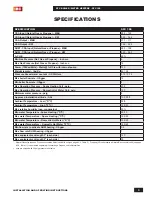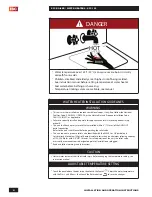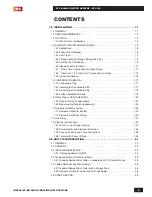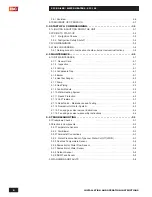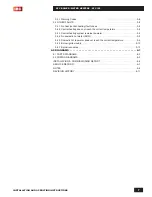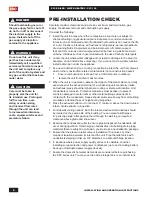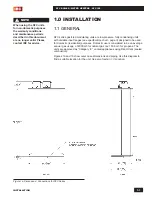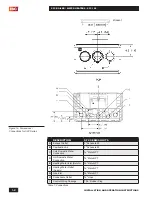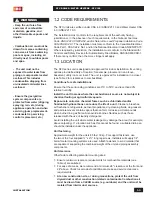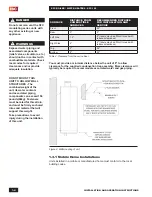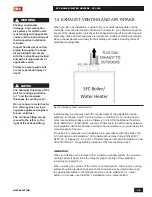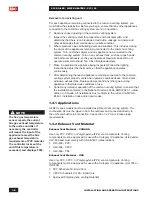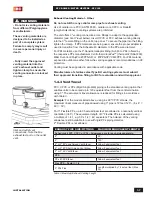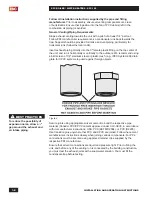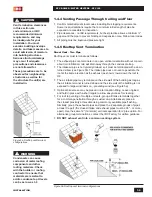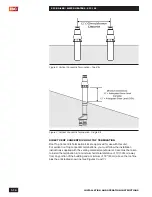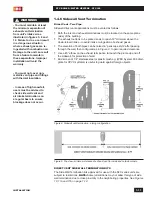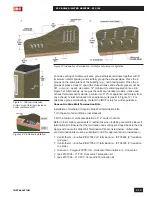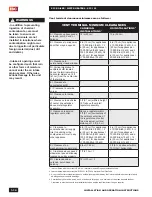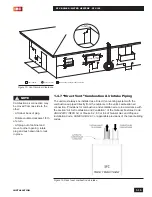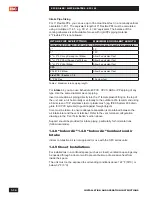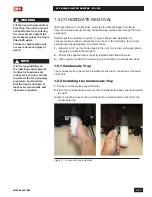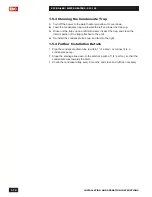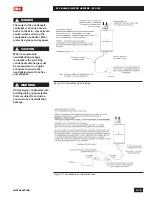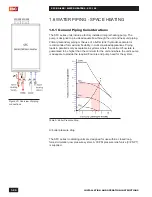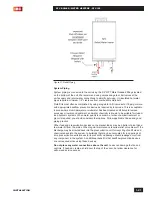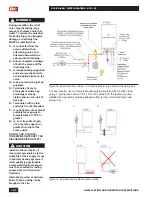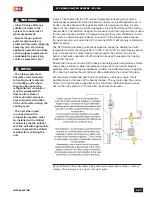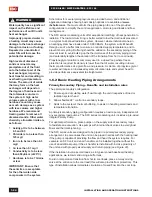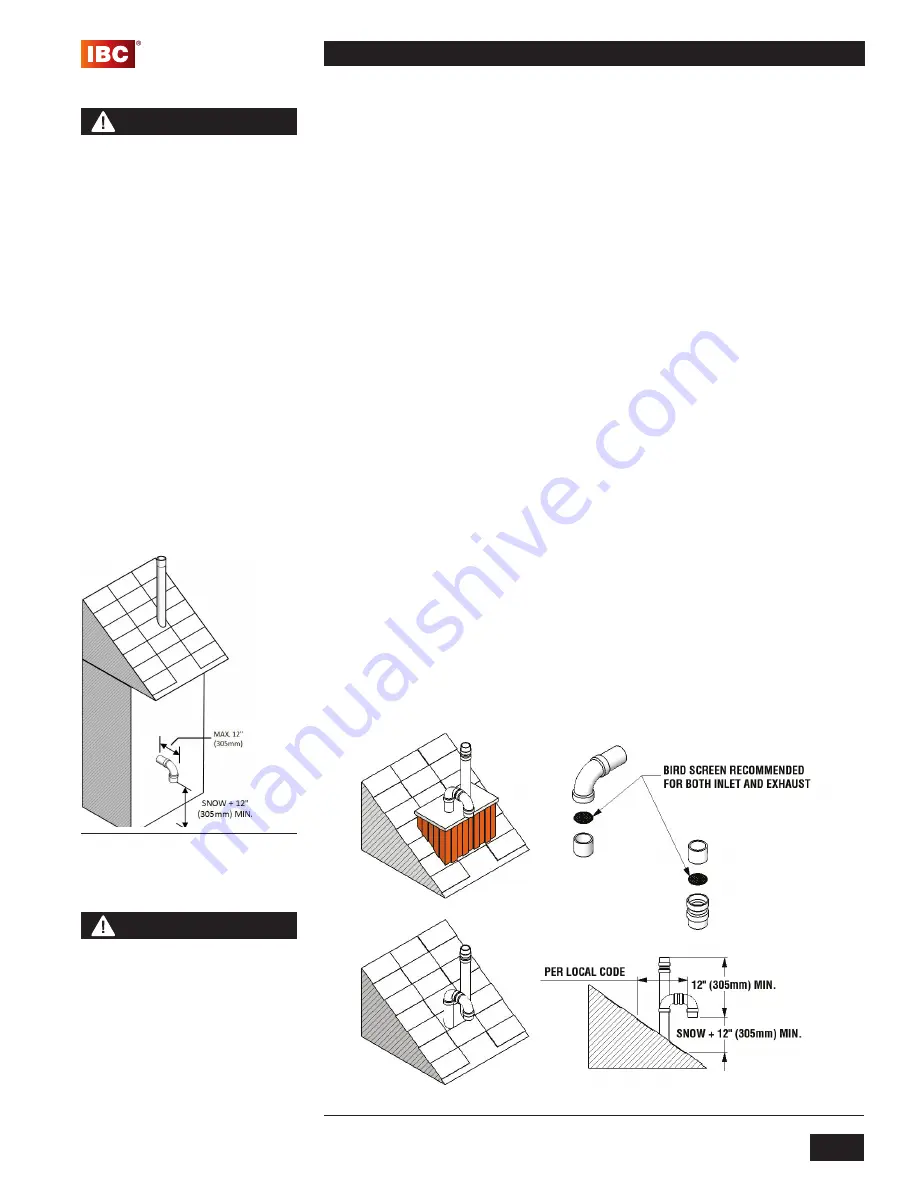
1-9
INSTALLATION
SFC BOILER / WATER HEATERS - SFC 199
1.4.4 Venting Passage Through Ceiling and Floor
•
Confirm material meets local codes including fire stopping requirements.
Some local jurisdictions require that a minimum initial length of pipe be
exposed or accessible for inspection.
•
Pipe clearances - no IBC requirements, but best practice allows a minimum ¼"
gap around the pipe to prevent binding and expansion noise. Follow local codes.
•
All piping must be liquid and pressure tight.
1.4.5 Rooftop Vent Termination
Direct Vent - Two Pipe
Rooftop vents must terminate as follows:
•
The exhaust pipe can terminate in an open vertical orientation without concern
about rain infiltration; rain will drain away through the condensate trap.
•
The intake air pipe is not typically drained, so it must be terminated with a down-
turned elbow
(see Figure 5b).
The intake pipe does not need to penetrate the
roof at the same elevation as the exhaust (as shown); lower down the roof is
OK.
•
The air intake pipe may terminate on the side wall of the building as long as
the air intake terminal is turned down and the side wall of the building is not
exposed to large wind loads i.e.,: prevailing wind (see Figure 5a).
•
Optional bird screen may be placed in a termination fitting. Leave unglued,
and hold in place with a short nipple to allow easy access for cleaning.
•
For roof top venting of multiple unit sets, group all intake terminals together
for a common penetration through a custom cap. Alternatively, place in
the closest proximity achievable using commonly available pipe flashing.
Similarly, group the exhaust pipes and place the 2 separate groups of pipes
at least 3' apart (the closest intake and exhaust pipes must be 36" - or more -
apart). Use the same 12" (minimum) vertical separation for 2 pipe option. For
alternative group terminations, contact the IBC Factory for written guidance.
•
DO NOT exhaust vent into a common venting system.
WARNING
Condensate can cause
corrosion of metal roofing
components and other
roofing materials. Check
with the builder or roofing
contractor to ensure that
materials are resistant to
acidic condensate. pH levels
can be as low as 3.0
CAUTION
Vent termination clearances
in this section are
code minimum, or IBC
recommended minimum
requirements, and may
be inadequate for your
installation. You must
examine building envelope
details, and take measures to
avoid admission of moisture
into building structures.
Serious structural damage
may occur if adequate
precautions and clearances
are not allowed for.
These precautions are to be
observed for neighbouring
structures as well as for
the structure the unit(s) are
installed in.
Figure 5b: Rooftop vent terminal configurations
Figure 5a: Rooftop vent terminal
configurations

